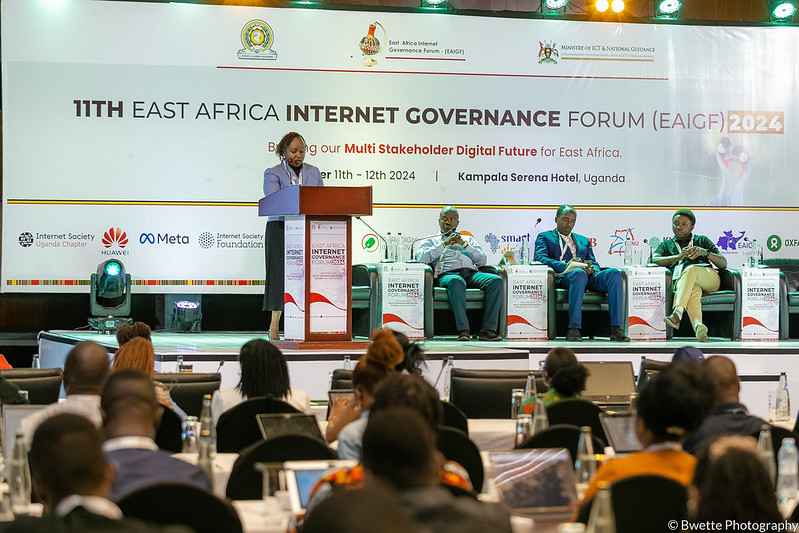By Winnie Kamau
During the 11th East Africa Internet Governance Forum in Kampala, representatives from six countries presented their Internet Governance reports.
These reports provided insights into the current state of Internet Governance within each country, highlighting key developments and challenges.
Jean-Paul Nkurnziza, the National Chairman of Burundi’s Internet Governance Forum, delivered a concerning report on the country’s fragile internet infrastructure. He emphasized the significant challenges posed by frequent power outages and fuel shortages, which hinder internet connectivity.
Nkurnziza noted that despite having 5,000 kilometres of fibre optic coverage, internet penetration in Burundi remains at a low 20%.
Internet Service Providers (ISPs) are forced to shut down services due to power shortages, often relying on fuel-powered generators. He proposed switching to solar energy as a more sustainable and reliable power source for internet infrastructure.
While this recommendation has been made previously, it remains out of reach for many due to various constraints.
However, Nkurnziza stressed the urgent need for collaboration and community empowerment to address these challenges.
“To truly make a difference, we must empower local communities to take charge. This requires regulatory support from the government and engagement from all of you,” he said.
“It’s no longer just about providing access; it’s about building the capacity of communities to maintain and grow that access sustainably.”
Other East African countries shared their experiences and progress in internet governance. Arsene Tungali from the Democratic Republic of Congo highlighted the importance of youth involvement and online courses in building digital literacy.
Rosemary Koech-Kimwatu from Kenya emphasized the role of collaboration in advancing digital inclusion.
“In Kenya, we’ve made strides in advancing digital inclusion,” she said.
Adding, “From organizing internet governance forums to holding national discussions on cybersecurity, we’ve learned that collaboration is everything.”
Rwanda’s Grace Ingabire announced the launch of an AI school focused on ethics and governance.
Tanzania shared its efforts to bridge the gender gap in digital spaces.
“We’re bringing more women into the fold. At our latest forum, women’s participation was at 19%, and we’re working to increase that,” Internet Governance Lead for Tanzania, Nazar Nicholas said.
South Sudan discussed its National Digital Transformation strategy and the importance of addressing misinformation and disinformation.
“The IGF has come at a crucial time when the Republic of South Sudan is developing its National Digital Transformation strategy.”
Uganda’s Maureen Agena highlighted the need for localized policies and reduced internet taxes.
“To share some of the key highlights from the report on the Youth Internet Governance…One of the agreements was the localization of policies across different regions of Uganda to allow citizens to actively participate in Uganda,” noted Maureen.
As the forum concluded, it became evident that the internet is no longer a luxury but a necessity for progress in East Africa.
For Burundi, investing in renewable energy and empowering local communities are crucial steps towards a more sustainable and connected future.
Winnie Kamau is the President Association of Freelance Journalists in Kenya.
![]()




